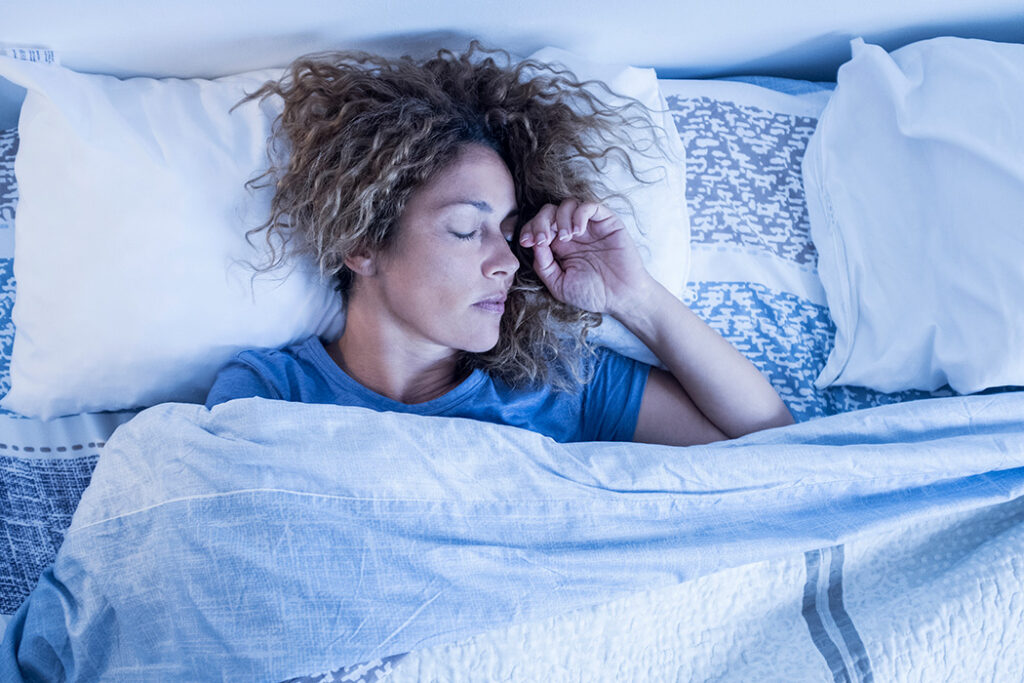What is Obstructive Sleep Apnea
What is obstructive sleep apnea? It’s a disorder in which you repeatedly stop and start breathing while sleeping. This can be overwhelming for those who have it. Your oxygen levels may become low enough during sleeping periods to cause you discomfort or even lose consciousness.
It is estimated that up to 50% of all adults suffer from some form or another of apnea. This condition arises when your esophagus muscles sporadically relax and thereby block your airway during the night, making it difficult for you to breathe properly.
This disorder can affect the energy levels needed for daily life activities such as waking up in time for a productive workday. Apnea can cause snoring which may signify anything from mild respiratory problems to an oral issue like enlarged tonsils/adenoids (tonsillitis).
Unhealthy breathing patterns during slumber might lead not just towards fragmented rest but also hypertension too due to the increased workload placed on the cardiovascular system while trying to get oxygen into cells.
There are many treatments available. One option is the use of a device that blows air into your mouth, opening up the obstruction in your throat while you snooze so that it will not stop working during REM cycles. Another possibility would be surgery to fix structural problems with one’s palate.
Should you see a doctor?
If you find yourself experiencing any of the following symptoms, it is best to consult with a physician: snoring that interferes with slumber or others’, gasping while breathing during slumber, pauses in inhalation halfway through one breath, and daytime drowsiness.
No one should have to live with loud snoring, but it can be a minor issue in some people. Talk to your doctor if you have consistently interrupted periods of silence by snoring or you making other noises.
It’s important to have your doctor check for any slumber issues that keeps you chronically fatigued. If excessive daytime drowsiness is a problem then obstructive apnea is a disorder that needs to be corrected.
What Causes Apnea
In this condition, the muscles in our throats relax too much which makes it hard for air to flow through them and forces us into conscious breathing every few minutes while we are asleep or resting.
Upper-airway obstruction occurs when an object such as a soft tissue blocks airflow during normal sleeping hours; these objects include tonsils and uvula but also tongue tissues.
The impact of slumber disruption on your ability to function and feel rested is profound. The way you feel during waking hours will most likely be impacted, as well as the quality and quantity of deep restful phases throughout each night’s sleeping cycle.
The interruption in breathing can occur five to thirty times or more per hour. Most people aren’t aware of being awoken from a snooze to correct their breathing problems.
What are the typical complications
• Daytime drowsiness and fatigue
Sufferers often experience severe daytime slumber, feeling irritable or easily distracted by their surrounding environment. They may discover themselves dozing off at work. This sleepiness can put them in danger for traffic accidents due to lack of concentration levels resulting from not getting enough restorative ZZZs per night!
• Cardiovascular issues
Studies have found that people with obstructive apnea have a higher risk of heart disease. This is due to the drop of oxygen levels in the blood, which increases their blood pressure and strains cardiovascular systems.
Furthermore, did you know that obstructive apnea raises the danger of irregular heart paces (arrhythmias)? This can lead to lower blood pressure and therefore sudden death?
• Issues with surgery
If you have obstructive apnea, partaking in surgery can be risky. People with this condition are more likely to experience complications and distress after being sedated on their back or in another position where they cannot breathe well for themselves.
If you have symptoms related to obstructive apnea, tell your surgeon before surgery. Your surgeon might want a test that checks for this condition to determine whether or not your disorder could affect the procedure and recovery.
• Infections and annoyances
People with obstructive apnea might be in jeopardy of developing COVID-19. They have been found to suffer more severe cases and need hospital treatment, too.
It is not uncommon for people to also experience memory difficulties, headaches, irritability, or sadness. Suffers may also need to urinate regularly throughout the night.
Diagnosis
Throughout the physical inspection, a medic will inspect all parts of your mouth and throat for any abnormalities. They might check blood pressure as well.
A specialist may conduct extra assessments to identify your disorder, establish the harshness of it, and plan for treatment. The assessment might involve remaining at a center all night to screen how you breathe during restful slumber as well other body functions while sleeping.
A type of study your medic may conduct is a polysomnography test. Polysomnography is a study that will monitor your heart, lungs, and brain while you’re hooked up to equipment. This can provide valuable information about how the body processes oxygen during rest time which may help with many health issues.
The study can make note of other disorders that cause excessive day drowsiness. These include episodic limb movement during the night and sudden bouts of slumber in response to environmental circumstances such as stress or hunger.
The medic may ask questions about these symptoms on a questionnaire so they will know what type(s) of treatment is right for you.
A home apnea test is a way for your clinician to diagnose obstructive apnea. In this type of polysomnography procedure, you will be measured on airflow and blood oxygen levels as well as limb movements or snoring intensity with an at-home version that requires just one night’s rest to provide accurate results.
In Conclusion
If you suspect you have apnea then we can help you get a better night’s slumber. Sleep and Internal Medicine Specialists in Fort Lauderdale is an exceptional medical practice offering all-purpose internal medicine and slumber medicine.




